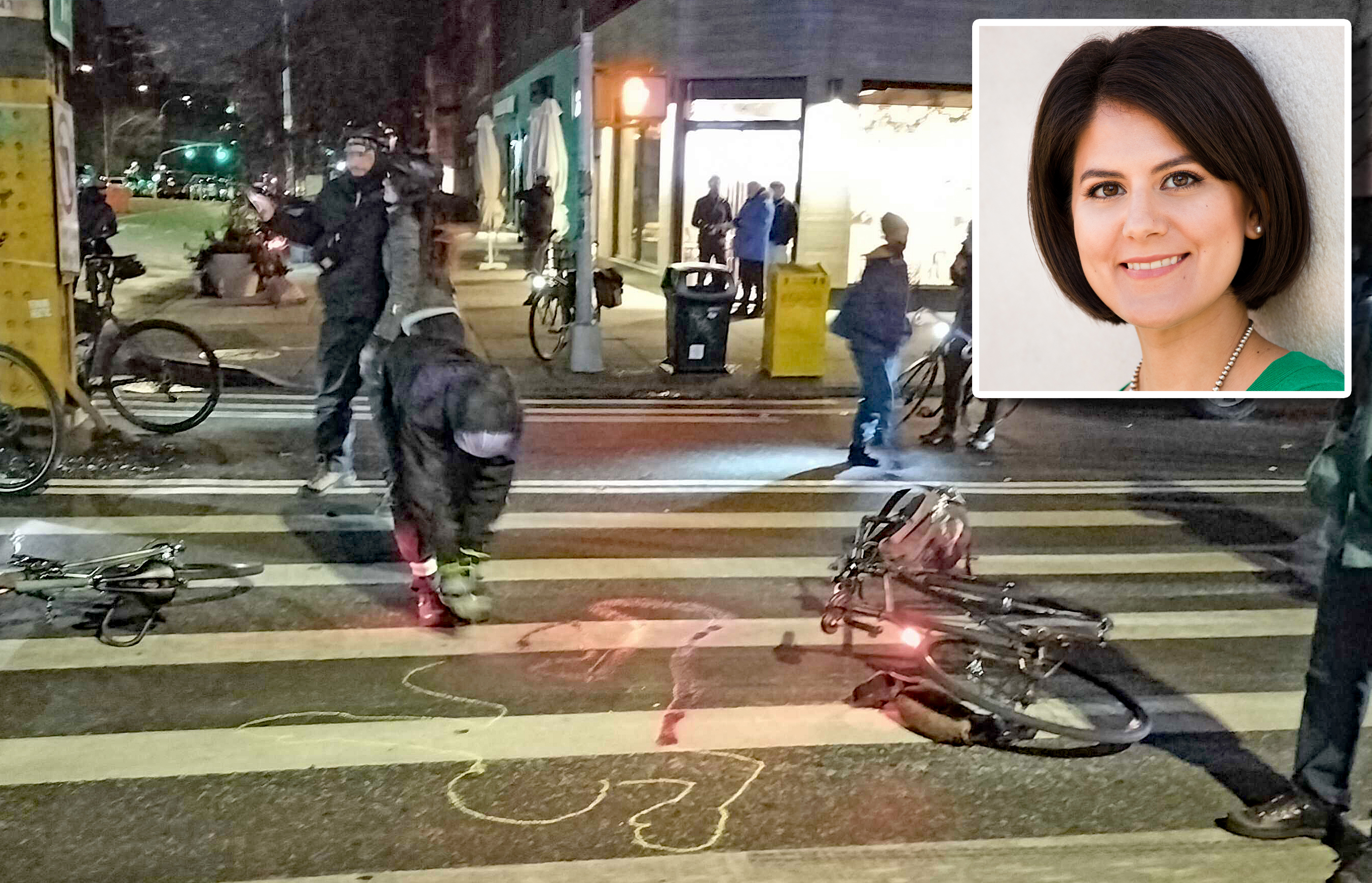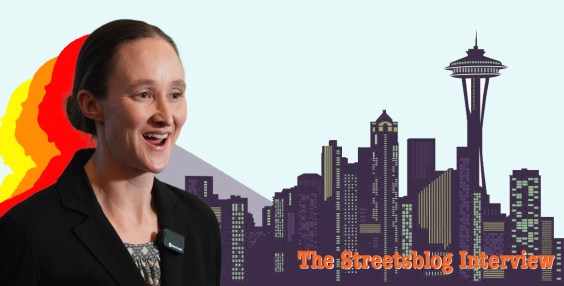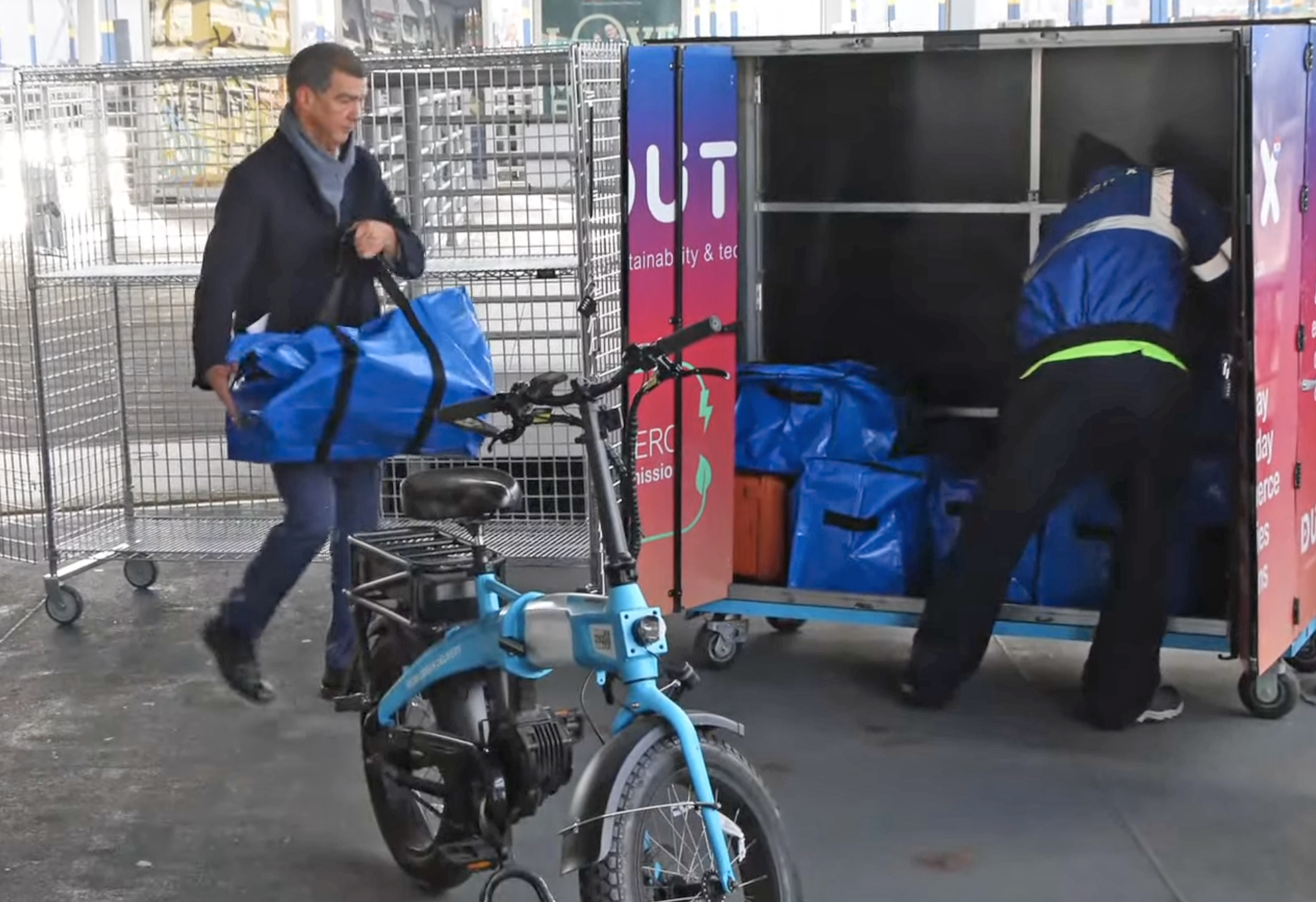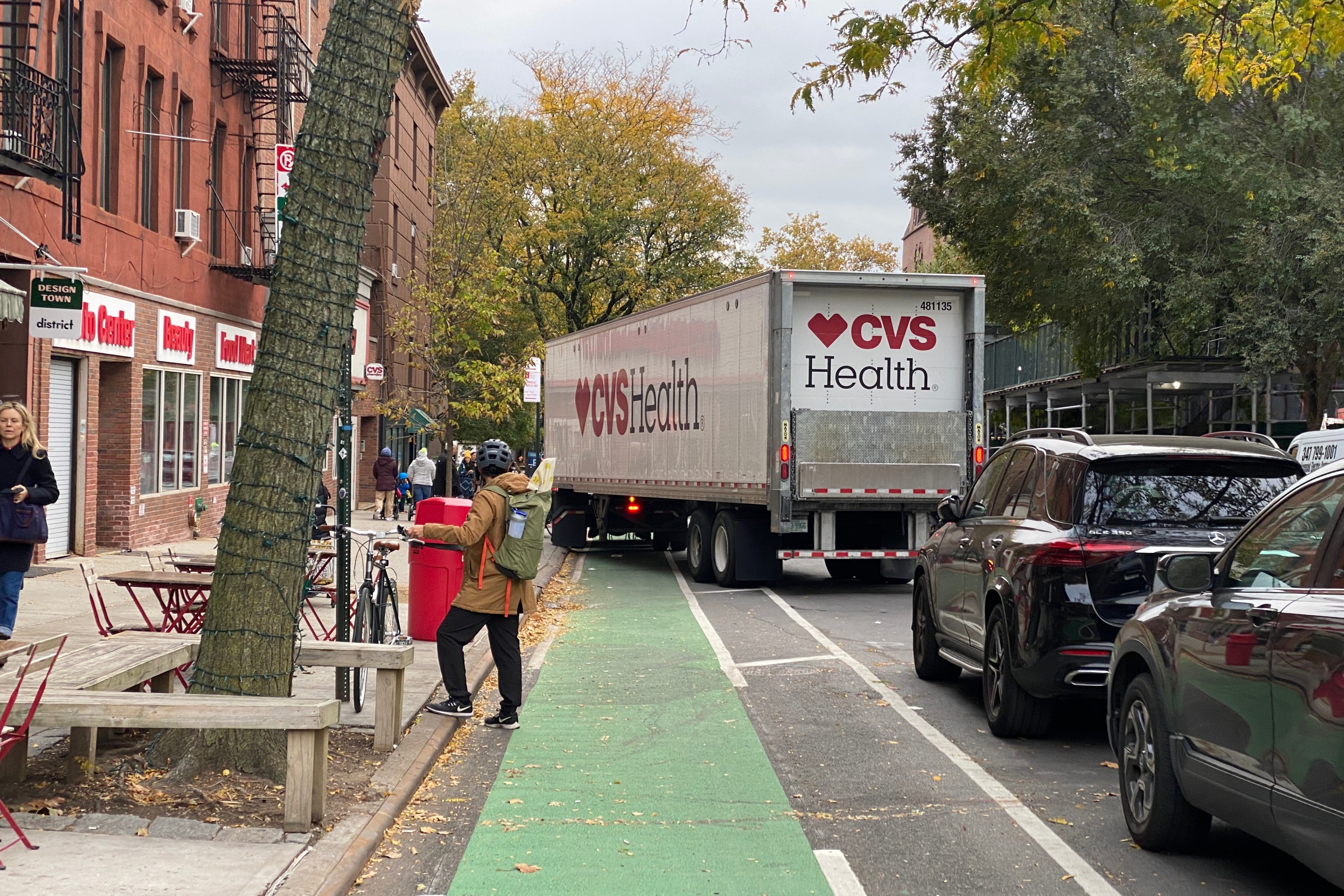 The B71 made its last run Saturday night. Photo: Aaron Naparstek
The B71 made its last run Saturday night. Photo: Aaron NaparstekToday, for the first time, New Yorkers braved the morning rush using our new, diminished transit system. With more than a dozen bus lines discontinued over the weekend, dozens more running less frequently, and subway service changes forcing straphangers to cope with longer rides and more crowded platforms, no one expects an orderly transition.
The initial shock will subside, eventually, after which we'll settle into the unpleasant truth that living without a car in New York City is harder now. For some people, that will mean longer commutes and less time with their families. Others will drive instead of taking transit. Or opt for commuter vans. Or, if they feel safe enough, ride their bikes. Some people just won't leave their homes as much.
Ask a hundred New Yorkers why this is happening, and I would estimate, conservatively, that eighty or ninety of them will direct their anger toward the agency that's implementing the cuts -- the MTA. And sure, the MTA isn't blameless. These austerity measures could have been put off, for the time being, using a one-shot infusion of federal stimulus cash. Does that make the MTA the right target for New Yorkers' frustration? Not at all.
These cuts are quite plainly the result of political decisions made by our elected officials. The Daily News editorial page nailed it today: If lawmakers in Albany hadn't swiped $143 million in dedicated transit tax revenues from the MTA, the $93 million in savings from service cuts would not be necessary. That theft was only the latest in a long line of decisions to deprive bus and subway riders of an adequately funded transit system.
If the State Senate hadn't blocked bridge tolls in 2009, these service cuts could have been prevented. If Sheldon Silver's Assembly hadn't killed congestion pricing the year before that, these cuts could have been prevented. If the state and city had maintained support for student transit service at historical levels, these cuts could have been prevented. If the state and city hadn't gutted funding for the MTA capital program in the 1990s, setting the clock ticking on the MTA debt bomb, these cuts could have been prevented.
Even in 2010, the cuts could have been avoided. Congestion pricing or bridge tolls are not a panacea for all the problems plaguing the transit system and its finances, but they could have raised sufficient funds to avert the current day of reckoning, and probably a few more that are already visible on the horizon.
The fact that Albany deemed road pricing too toxic to even consider in an election year speaks volumes about the political calculus at work. Saddling New York City's car-free majority with the worst transit cuts since the mayoralty of Abe Beame: That's an acceptable electoral risk. Asking a small minority of relatively privileged car commuters to help pay for the transit system that saves NYC streets from unrelenting gridlock: That's unthinkable to our elected leadership.
Unless New York City representatives are forced to re-evaluate the political risk of allowing transit service to deteriorate, today's cuts probably won't be the last.





